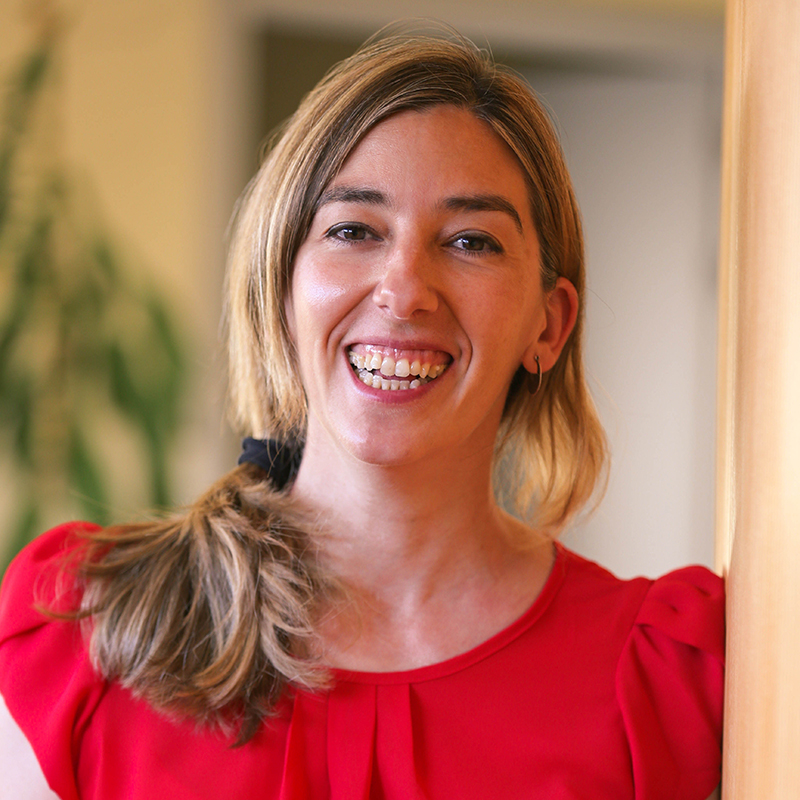AREA
BME/ Biomedicine
CAA/ Agricultural and Agri-food sciences
SUB AREA
IIT/ Immunology, Infection and new therapies
ALI/ Food Science and Technology
GYA/ Agriculture and Farming.
KEYWORDS
ANTIBIOTIC RESISTANCE; ONEHEALTH, HUMANS-ANIMALS-ENVIRONMENT, RESISTOME AND VIRULOME, FOOD SECURITY; NEW ANTIMICROBIALS, ANTIBIOTIC RESISTANCE MODELLING; ANTIBIOTIC FOOTPRINT.
SUPERVISORY TEAM

PROF. CARMEN TORRES
Supervisor
Carmen is Professor of Biochemistry and Molecular Biology at the University of La Rioja (UR). She has a PhD in Pharmacy, Specialist in Clinical Microbiology (system FIR). She leads the Research Group “Antibiotic Resistance from the One Health Perspective (OneHealth-UR)” working on different research lines: 1) Antimicrobial resistance from OneHealth perspective: humans-animals-food-environment; 2) New antimicrobials; 3) Alternatives to antibiotics in livestock and food security; 4) Impact of antimicrobial resistance in public health and forces that drive it. 5) Antibiotic footprint in food production and modeling of antimicrobial resistance in Onehealth approach.
Carmen is member of the working group of PRAN-MA (National Plan of Antimicrobial Resistance-Environment) . She is member of “Academia de Farmacia del Reino de Aragón” since 2012 and Member of the “Consejo Científico Asesor, Fundación Gadea por la Ciencia”, since 2019. She has been president of GEMARA (Spanish group for the Study of Antimicrobial Action and Resistance) until June 2021.
She has a long track of publications JCR: >440- Scopus: 7202232173 (h index: 55, >440 publications, >12,000 cites) and supervised 29 thesis, many of them receiving awards or special acknowledgements. She is also coauthor of a Spanish patent and has participated in 31 National/International Research Projects (26 as principal researcher).

DR. MARIANA BOADELLA
Co-Supervisor
Mariana holds a degree in veterinary medicine from the Universitat Autònoma de Barcelona, an international PhD from the University of Castilla-La Mancha (UCLM) and an MBA specializing in Biotechnology from the IE Business School. She has more than 12 years of experience in the field of wildlife and more than seven years as a researcher in internationally recognized research centers, such as IREC in Spain and Erasmus MC in the Netherlands, where she worked as a MSCA fellow. She has more than 50 SCI scientific publications and has specialized in the development of specific diagnostics for wildlife and in the control of shared diseases. In 2014, she re-oriented her scientific career to become the Chief Executive Officer (CEO) of SABIOTEC, a spin-off company that provides solutions for the prevention and control of health problems in wildlife and free-ranging livestock.

PROF. PATRÍCIA POETA
Co-Supervisor
Patricia holds is Full Professor and have a PhD in Veterinary Sciences. She is EBVS® European Specialist in Veterinary Microbiology and ESGVM Executive Committee of ESCMID. She works as Professor at the University of Trás-os-Montes and Alto Douro and Member of LAVQ-REQUIMTE, University NOVA of Lisbon. She is head of the Research Group MicroArt- Microbiology and Antibiotic resistance Team and head of the Medical Microbiology Laboratory. Her main research interest is in the characterization of antibiotic resistance mechanisms in bacteria of different origins as well the performance of studies of molecular epidemiology to characterize the genetic lineages of antibiotic resistant bacteria. She has directed several doctoral and masters’ theses and coordinated different research projects funded by private companies and inter-university projects, she teaches international courses and Master’s degree and keeps working activities with several national and international entities. She has published more than 190 articles in journals from the SCI and several book chapters and received 38 awards.
RESEARCH GROUP
DESCRIPTION
The research group, OneHealth-UR, named Antibiotic Resistance from the One Health Perspective is coordinated by Prof. Carmen Torres and it is integrated in the Department of Agriculture and Food of the University of La Rioja (Logrono, Spain).
The group has work in the last three decades in the field of antibiotic resistance and lately is very interested in antibiotic resistance modelling to analyze all the factors that contribute to antimicrobial resistance and the dissemination in different ecosystems. To that aim the strategies to determine the antibiotic footprint in different sectors is of great relevance, which requires an interdisciplinary approach. The research group is multidisciplinary, and it is composed by 12 members of the University of La Rioja (2 Full Professors, 4 Associate Professors, 2 Temporary Associate Professors and 4 predoctoral PhD students), as well as other PhD students and researchers of other institutions. Additionally, the group has collaborations with many research groups at national and international level, with groups of Europe (Portugal, France, Italy, UK, Netherlands, Germany, Denmark, Switzerland …), America (USA, Canada, Mexico, Peru, Brazil, Chile), and Africa (Tunisia, Algeria, Nigeria, Senegal) in the field of antimicrobial resistance and molecular epidemiology of multidrug resistant bacteria. The group has run numerous national and international projects in the field of antimicrobial resistance, some of them are ongoing.
OUTPUTS OF RELEVANCE
- The supervisor (C. Torres) has coordinated four multicenter studies in the last 5 years in which clinical microbiologists of up to 20 hospitals of all the country have participated in relevant research in the field of antimicrobial resistance in zoonotic bacteria that are in the animal-human interface, specifically related to methicillin-resistant Staphylococcus aureus. These results rendered 8 publications in high impact journals. This multicenter collaboration is ongoing in future projects.
- The group of research OneHealth-UR has been one of the first in country in the study of antimicrobial resistance from the OneHealth perspective and have characterized new mechanisms of resistance and new mobile genetic elements in bacteria de different ecosystems. In addition, it has performed many relevant contributions to the field of antimicrobial resistance and new strategies to fight against infectious diseases.
- The supervisor has coordinated many collaborative projects and strategic actions with universities and research groups of different countries of Africa (Tunisia, Algerie, Nigeria and Senegal) and Latin America (Mexico, Chile, Brazil, Peru and Colombia) in the field of antimicrobial resistance, with many common publications, as can be seen in the CV of the supervisor.
- The group OneHealth-UR has also many collaborative research activities in the field of Antimicrobial resistance with many research group of Europe and America in the field of antimicrobial resistance as can be observed in the CV of the supervisor.
International and European projects (on going):
- The value of diagnostics to combat antimicrobial resistance by optimising antibiotic use (Value-Dx) H2020. Project Innovative Medicines Initiative (IMI2-RIA DLV-820755). Principal researcher: Herman Goosens (Univ of Antwerp, Belgium). April 2019- March 2023.
- Les bactériocines: une alternative naturelle fort prometteuse pour le remplacement des antibiotiques en production avicole (Avibiocin). IDRC (Internacional Development Research Center-Canada)-InnoVet-Initiative. Principal researchers: I. Fliss/K.B. Slama (Univ. Laval, Canada/Univ. Tunis, Tunisia) (2019-2022) .
- Towards Developing an-International Environmental AMR Surveillance Strategy H2020- JPIAMR-VI Surveillance Networks 2018. Principal researcher: Dr W. Gaze (Univ- Exeter, UK) (2019-2021).
- Research in food components with functional properties and their action on the intestinal microbiota and health (FoodPropHealth). Interreg Poctefa aCCeSS. Principal researcher C. Torres (Oct. 2020-Abril 2021).
- Impact of interventions on development and transmission of antibiotic-resistant bacteria in humans, animals and environment of small animal clinics. JPI-AMR-ACTION Joint. “One Health interventions to prevent or reduce the development and transmission of antimicrobial resistance. Principal researcher: Prof. P. Auvinen (Univ. Helsinki, Finland). (2021-2024). In revision process: has passed the first phase and waiting the second phase.
NETWORK OF COLLABORATORS
INTERNATONAL COLLABORATORS:
- Faculty of Veterinary, University of Tras-os-Montes-e Alto Douro (UTAD), Vila Real, Portugal (Dra. P. Poeta, Dr. G. Igrejas).
- University of Notre Dame, Department of Chemistry and Biochemistry, Notre Dame, IN, USA (Prof. S. Mobasheri and Dra M. Chang).
- Department of Veterinary Medicine, Freie Universität, Berlin, Germany (Dr. S. Schwarz).
- Université of Laval, Quebec, Canadá (Dr. I. Fliss).
- Department of Microbiology, Faculty of Sciences, University El Manar of Tunis, Tunisia (Prof. A. Boudabous, Dr. K. Ben Slama, Dra. N. Klibi).
- Muséum National d’Histoire Naturelle Molécules de Communication et Adaptation des Microorganismes, Paris France (Dr. S. Rebuffat, Z Zirah).
- Department of Clinical Veterinary Medicine, University of Cambridge, UK (Dr. M. A. Holmes).
- Environmental Genomics and Systems Biology Research Group, Institute of Natural Resource Sciences, Zurich University of Applied Sciences, Suiza (Dra E. Gómez-Sanz).
- Faculty of Science and Technology, Universidad Nova de Lisboa, Portugal (Dr. J.L. Capelo, C. Lodeiro).
- Benemérita Universidad Autónoma de Puebla, Mexico (Dra R. Rocha, Dra P. Lozano).
- Faculty of Pharmacy, University of Porto, Portugal (Dra L. Peixe).
- Department of Medical Microbiology, University Medical Center Utrecht, Utrecht, The Netherlands (Dr. R.J.L. Willems).
- Institute of Basic Medical Sciences. Faculty of Medicine. University of Oslo, Norway (Dr. J. Corander).
- Universidad de Buenos Aires, Buenos Aires, Argentina (Dra D. Centrón; Dra. P. Quiroga).
- Institut of Microbiology and Epizootics, Veterinary Faculty, Berlin, Germany (Dr. S. Gunther).
- Department of Microbiology and Infection Control. Staten Serum Institut, Copenhagen, Denmark (Dr. J. Larsen, M. Stegger).
- Institut Pasteur, Tunis, Tunisia (Dra. A. Jouini).
- Institute of Veterinary Research of Tunis, Tunisia (Prof. MS Abbassi).
- National School of Veterinary Medicine of Sidi Thabet (ENMV),Tunisia (Prof. S. Hammami).
- Laboratory of Treatment and Water Recycling. Centre of Research and Water Technologies (CERTE), Technopark of Borj-Cedria, Soliman; Tunisia (Prof. A. Hassen).
- Ecole Nationale de Médecine Vétérinaire, Université de La Manouba, Sidi Thabet, Tunisia (Prof. L. Messadi).
- Charles Nicolle Hospital, Laboratory of Microbiology, Tunis, Tunisia (Dra. I. Boutiba-Ben Boubaker).
- Department of Microbiology and Immunology, UNESP, Botucatu, SP, Brasil (Dr. N. Cirone, Dra Vera Rall).
- University of Djelfa, Argeria (Dr. A. Hackem).
- Department of Veterinary Pathology and Microbiology, University of Nigeria, Nasukka (Dr. K. Chah).
- Faculty of Biological Sciences, University of Sciences and Technology Houari Boumedien, Algiers, Argeria (Dr. R. Bakour).
NATIONAL COLLABORATORS:
- Biotechnology and Animal Health – SABIOTEC, Ciudad Real, Spain (Dr. M. Boadella)
- Research Institut of wildlife (IREC), CSIC, Ciudad Real; Spain (Dr. U. Hoffle, F. Ruiz-Fons).
- Biomedical Research Center of La Rioja (CIBIR), Logroño, Spain (Dr. Y. Sáenz/Dr. M. de Toro)
- Hospital Ramón y Cajal of Madrid (Dr. F. Baquero, Dr. R. Cantón, Dra. T. Coque, Dra. R. Del Campo).
- Laboratory of Reference of Escherichia coli (Univ. Santiago de Compostela, Lugo) (Dr. J. Blanco, Dra. A. Mora).
- Faculty of Veterinary, Universidad Complutense of Madrid (Dr. J. M. Rodríguez).
- Department of Animal Pathology, Faculty of Veterinary. University Complutense, Madrid (Dr. M.A. Moreno).
- Department of Animal Pathology, Faculty of Veterinary, University of Zaragoza (Dr. C. Simón).
- Department of Animal Production and Food Technology, Univ. of Zaragoza (Dr. L. Sánchez).
- Institut of Biomedicine and Biothecnology of Cantabria, Univ. of Cantabria (Dr. F. de la Cruz).
- Clinical Microbiologists of 22 Spanish Hospitals.
CAREER DEVELOPMENT
PROPOSED SECONDMENT
A secondment for 3 months in one or several periods (due to seasonality of wildlife epidemiology work) will be possible at Sabiotec with the aim at monitoring of wildlife and data collection on diseases and epidemiology at the wildlife-livestock-environment-human interface. The research fellow will be trained in both the design of sampling and management strategies and the specific use of cutting edge field technology and its application in real situations. This research stay at the enterprise Sabiotec will allow him/her to develop skills in command engagement with stakeholders and the design and management of field projects that generate data that will be later used in predictive models.
Additional research stays for 3 months will be possible at the University of Trás-os-Montes and Alto Douro (Vila Real, Portugal) at the group led by Patricia to do collaborative work on antibiotic modelling, and genomic/proteomic analysis of antibiotic resistance from One Health Perspective.
DESIRABLE DEVELOPMENT
Employability
Building collaborative networks
International mobility
Fundraising (grants, projects)
Teaching and supervision.
TRAINING SKILLS
Project management
Grant writing
Communication to the civil society and public engagement
Open science
Ethics in research
Leadership
OTHERS
The group is integrated in two research clusters with researchers from Campus Iberus universities (University of Zaragoza, University of La Rioja, Public University of Navarre, University of Lleida) and research groups in France, working collaboratively in two strategic areas: Technologies for Health (Cluster INFECMOL led by Javier Sancho) and Agrofood and Nutrition (Cluster NUTRIBERUS led by Lourdes Sanchez). They have participated in the Interreg Poctefa aCCeSS project to launch two projects in collaboration with SME companies and research partners across the border in France, such as TOXALIM Research Centre; Univ. Pau, CNRS-UPPA


